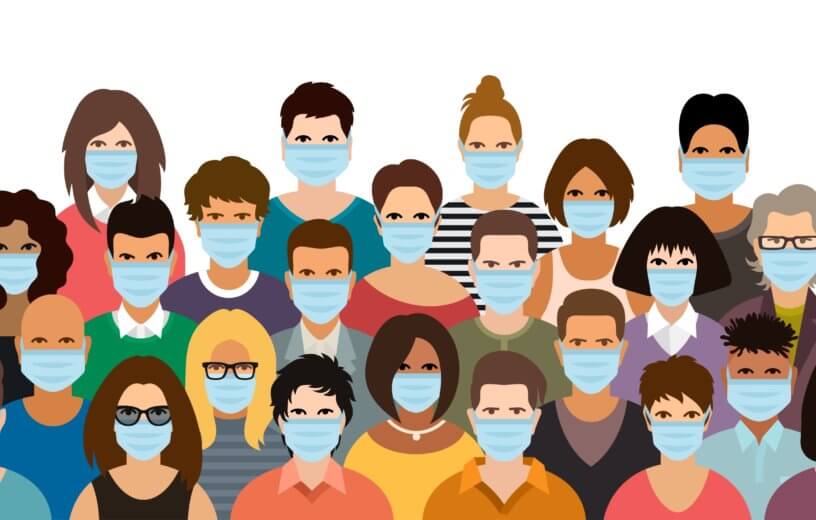BEER-SHEVA, Israel — As the coronavirus pandemic drags on, putting on a face mask has become as second nature to people as putting on pants. While it may be helping to limit of the virus’s spread, scientists say it’s also made it much harder to figure out who’s actually standing next to us in public. Researchers from Ben-Gurion University of the Negev say face masks are lowering the brain’s ability to properly recognize and distinguish between different faces.
“For those of you who don’t always recognize a friend or acquaintance wearing a mask, you are not alone,” the research team says in a media release.
“Faces are among the most informative and significant visual stimuli in human perception and play a unique role in communicative, social daily interactions. The unprecedented effort to minimize COVID-19 transmission has created a new dimension in facial recognition due to mask wearing.”
Face masks ‘could lead to accidentally recognizing faces of unfamiliar people as those we know’
Prof. Tzvi Ganel from BGU and Prof. Erez Freud from York University in Toronto examined how wearing a mask interferes with a person’s ability to recognize faces. Using a version of the Cambridge Face Memory Test, nearly 500 people tested their facial perception while looking at masked and unmasked faces.
The results reveal wearing a mask decreases a person’s ability to successfully tell who someone is by 15 percent.
“This could lead to many errors in correctly recognizing people we know, or alternatively, accidently recognizing faces of unfamiliar people as people we know,” says Prof. Galia Avidan, an expert on facial recognition and perception at BGU. “Face masks could be even more challenging to people whose face recognition skills are not ideal to begin with and cause greater impairment.”
The study also finds masks specifically interfere with the mind’s ability to process a whole face instantly. Researchers add people are now processing individual features to figure out who they’re looking at, which takes more time.
“Instead of looking at the entire face, we’re now forced to look at eyes, nose, cheeks, and other visible elements separately to construct an entire facial face percept – which we used to do instantly,” the team explains.
“Given that mask wearing has rapidly become an important norm in countries around the globe, future research should explore the social and psychological implications of wearing masks on human behavior,” Ganel adds. “The magnitude of the effect of masks that we report in the current study is probably an underestimation of the actual degree in performance dropdown for masked faces.”
The study appears in the journal Scientific Reports.
